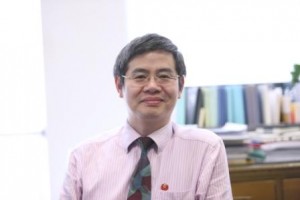In China, homegrown computer chips inspired by Chairman Mao


Those processors could end up in your home computer or set top box, according to Hu - with a little help from Chairman Mao, that is.
China is the world’s biggest manufacturer of computer components, a position cemented when Chinese firm Lenovo bought IBM’s entire PC business in 2004. But while your computer might be made in China, its processor almost certainly isn't: not a single one of the world’s top 20 chip manufacturers is Chinese. That’s a source of frustration for the Chinese government, which wants China to transition away from making cheap goods into more lucrative hi-tech manufacturing. “It’s the next stage for China’s IT industry,” Hu said.
China’s answer to Intel is the state-owned Loongson corporation, which has been receiving increasingly large slices of government technology funding since it was founded in 2002. The company’s latest generation of chips is not the world’s fastest, but clock speeds of over 1 GHz make the chips capable of running some pretty demanding applications. The first desktop PC based on a Loongson chip appeared in 2006, and the processor can be used in servers, netbooks and tablet computers. Loongson chips also power the Sunway Bluelight supercomputer, one of 20 fastest computers ever built.
But Loongson hopes to beat its rivals on price and efficiency, rather than speed. Aside from the lower costs of fabrication in China, Loongson Chips use half the electricity of comparable Intel Chips, Hu said. The rise of cloud computing in China is a huge opportunity for Loongson, Hu said. “With cloud computing, high performance doesn't matter as much as high throughput and efficiency,” he said.
Lack of software compatibility makes the desktop computing market a more difficult prospect for Loongson. The firm's processors' instruction set, which defines the basic commands that a the processor understands, is based on a US-developed standard known as MIPS. But MIPS is incompatible with the instruction set used by Intel and AMD processors, so Loongson processors are can’t run the Windows operating system. “We know that what makes a processors successful is more about whats outside the chip than inside,” Hu said. “We need to create a software ecosystem around our processors.”
Loongson hopes that US software companies can help it to build that ecosystem. The company recently made a deal with Adobe to work on a Loongson compatible version of their Flash animation software.
American's lack of trust in Chinese IT companies is a recurring theme in Hu’s remarks. Loongson was incorrectly accused of stealing technology from MIPS, but the firm had just one patent in China, and Loongson paid to license the technology in the US. “I think it’s a mistake to see as as a threat to US companies,” he said. “By the time we’re exporting our processors, who knows what even more advanced products American companies will be making,” he said.
Suprisingly for a hardware engineer, Hu’s modestly-sized office is dominated by images of former Chinese leader Mao Zedong. A bust of Mao sits on Hu’s bookcase, a painting of the great helmsmen studying a newspaper hangs over his desk, and Hu even sports a Mao pin-badge on his shirt. Mao’s egalitarian philosophy fits Loongson’s low cost-approach, he said. “I want to ensure that everyone can participate in the information society,” he said.
Focusing on smaller clients neglected by bigger chip companies is a Maoist tactic, according to Hu. “Mao said that even the strongest have a weakness,” he said. Giant corporations such as Intel have trouble meeting the needs of smaller clients, whereas Loongson focuses on low-volume orders, Hu said, citing a recent deal to provide 5,000 schools across China with Loongson powered computers.
Building a Loongson into a company to rival Intel or Samsung will be a long struggle “It could take 10 or 20 years,” he said. A bit like Mao’s long march then? “Exactly like that,” he said.
This post was originally published on Smartplanet.com